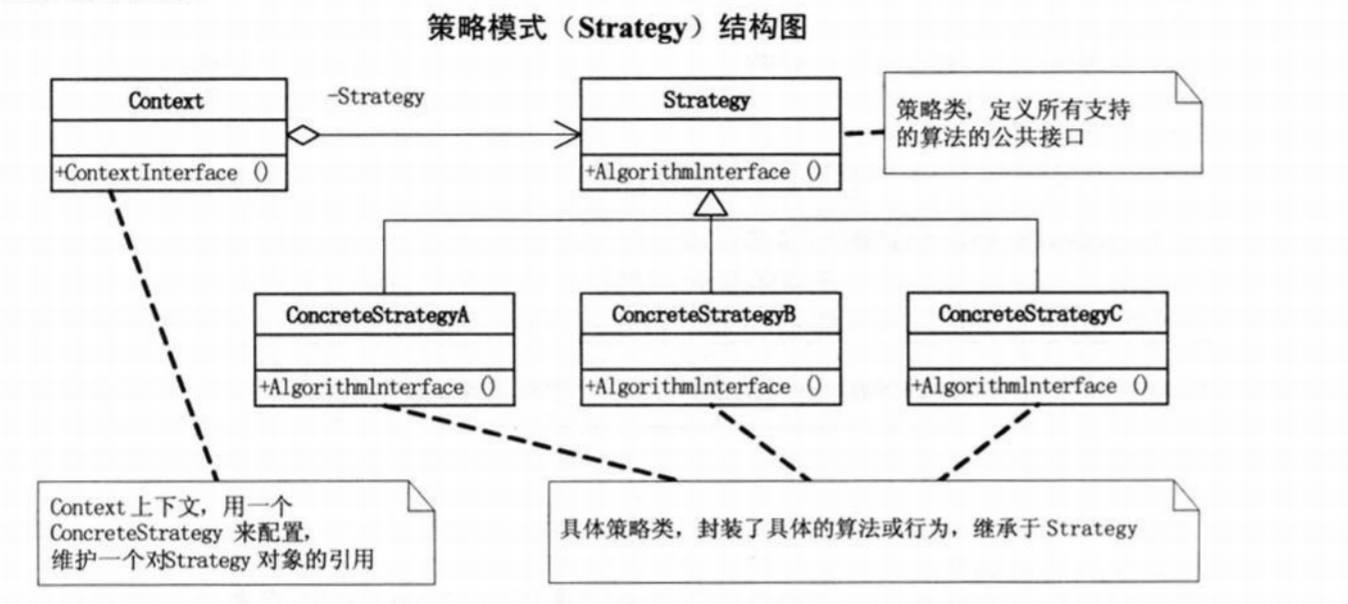策略模式(strategy):它定义了算法家族,分别封装起来,让它们之间可以互相替换,此模式让算法的变化,不会影响到使用算法的客户。
理念:封装变化点,在不同时间应用不同的业务规则。
如:商场中促销,打折,返利,积分,都是一种促销模式,针对这些促销,可以指定对应的策略。
策略模式设计图

场景:
针对商场中不同的促销产生不同的策略
使用策略+简单工厂实现
java代码实现
//主函数public class StrategyTest {public static void main(String[] args) {double money = 400;//正常收费CashContext context = new CashContext("正常收费");System.out.println("正常收费:" + context.getResult(money));//打折context = new CashContext("打折");System.out.println("正常收费:" + context.getResult(money));//返利context = new CashContext("返利");System.out.println("正常收费:" + context.getResult(money));}}//现金上下文(类似工厂作用)public class CashContext {CashSuper cashSuper;public CashContext(String type) {switch (type) {case "正常收费":cashSuper = new CashNormal();break;case "打折":cashSuper = new CashRebate(0.8);break;case "返利":cashSuper = new CashReturn(300, 100);break;}}public double getResult(double money) {return cashSuper.acceptCash(money);}}//策略的抽象类public abstract class CashSuper {public abstract double acceptCash(double money);}//正常收费策略public class CashNormal extends CashSuper {@Overridepublic double acceptCash(double money) {return money;}}//打折收费策略public class CashRebate extends CashSuper {public double discount;public CashRebate(double discount) {this.discount = discount;}@Overridepublic double acceptCash(double money) {return money * discount;}}//返利收费策略public class CashReturn extends CashSuper {public double moneyCondition = 0.0;public double moneyReturn = 0.0;public CashReturn(double moneyCondition, double moneyReturn){this.moneyCondition = moneyCondition;this.moneyReturn = moneyReturn;}@Overridepublic double acceptCash(double money) {double result = money;if (money > moneyCondition){result = result - (int)(money / moneyCondition) * moneyReturn;}return result;}}
存在的问题,如果新增促销策略,需要在工厂的switch里添加代码,可以使用反射优化

